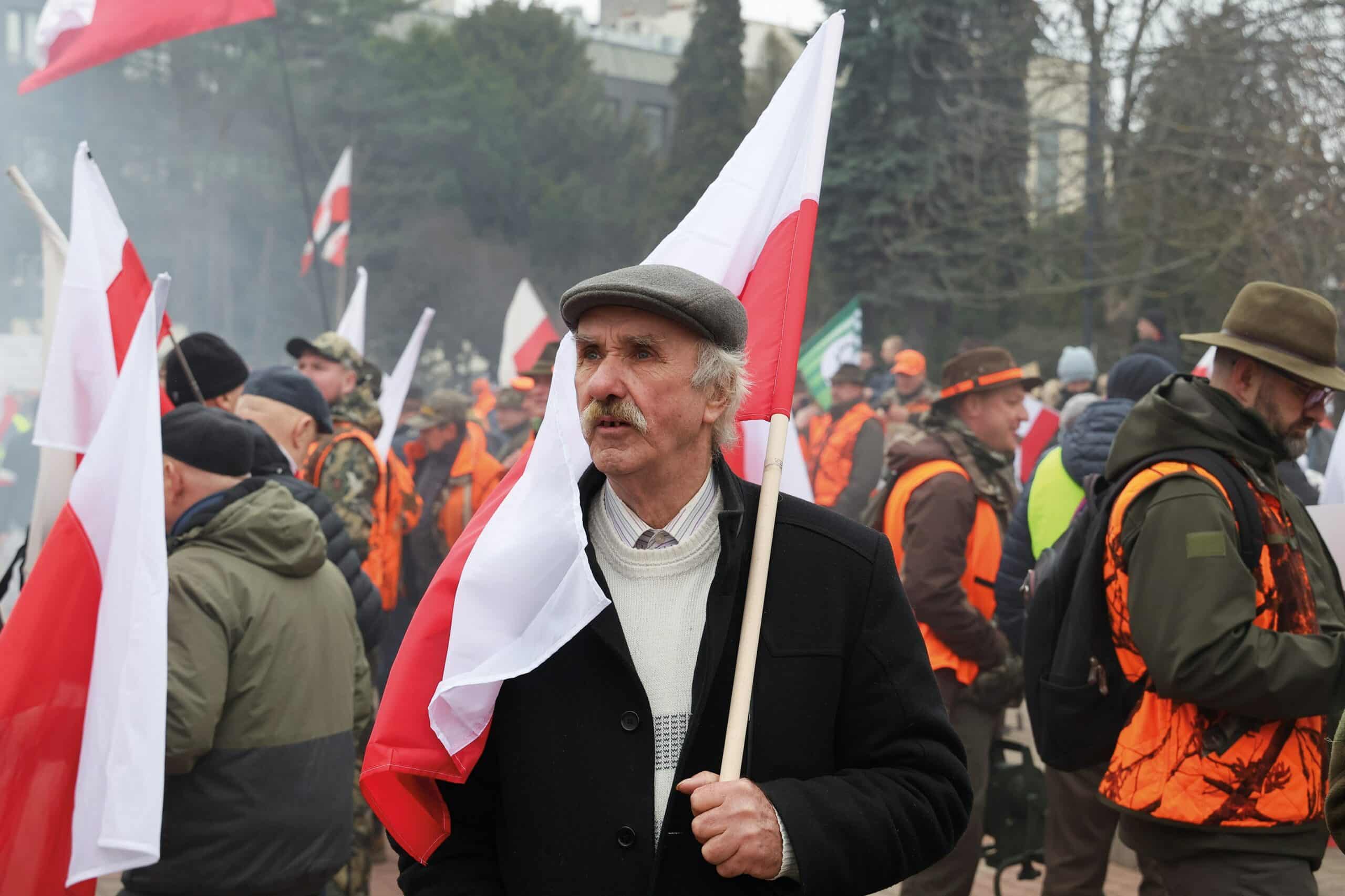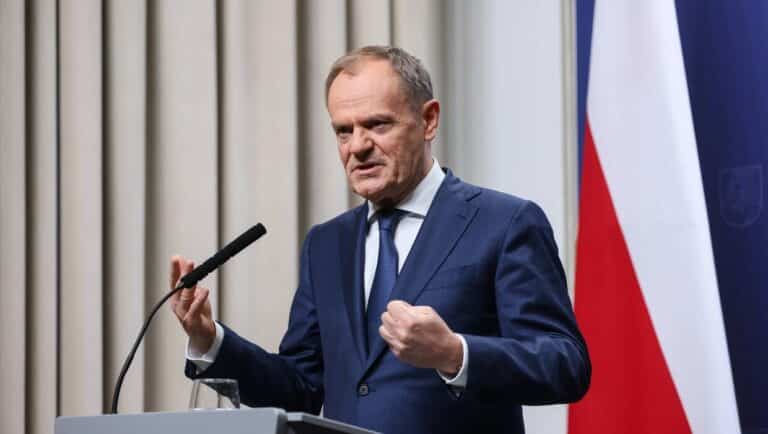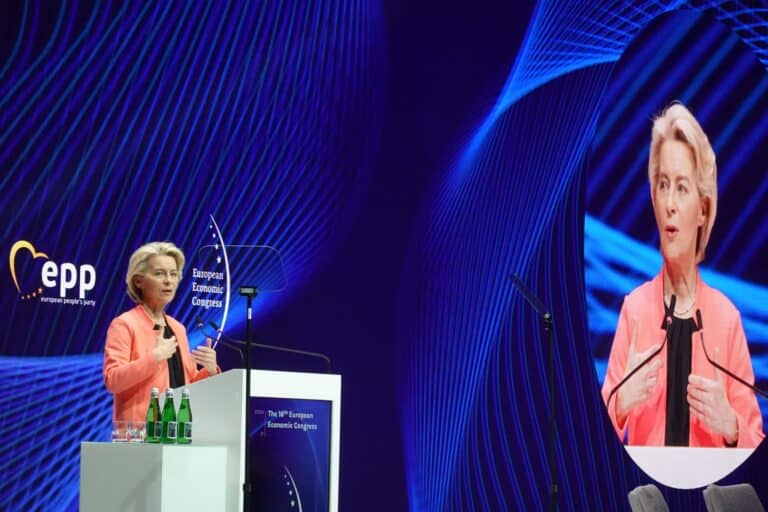EC defends Green Deal as tractors block Warsaw
The second week of March saw demonstrations getting out of hand on the streets in Warsaw.
The European Agricultural Commission spokesperson has confirmed its commitment to Green Deal measures which have led to protests throughout Europe. The second week of March saw demonstrations getting out of hand on the streets in Warsaw. Prime Minister Donald Tusk has promised to meet the farmers on 10 March, after demonstrators assembled outside the cabinet offices.
The EU Commission statement contradicted Agriculture Commissioner Janusz Wojciechowski’s promises on Thursday after the Warsaw demonstrations that the EU Green Deal measures limiting the use of pesticides and fertilizer would be suspended this year and watered down. According to Euroactiv reports, Wojciechowski’s position is under threat after censure from EC President Ursula Von Der Leyen had criticized his statements on Ukrainian agricultural imports, which had not been agreed with the commission.
The Warsaw demonstration on 7 March attracted some 30,000 participants and let to the use of tear gas outside the Polish parliament. This followed protests on the 27th of February in the capital.
Protests have taken place nationwide. A 17,000 vehicle roadblock on the A2 Motorway between Poznań and Berlin at the Świecie border crossing in late February led to concerns about supplies for supermarkets.
Meanwhile, after some 160,000 tonnes of Ukrainian grain entering the country by rail was destroyed by Polish protestors, Ukrainian President Volodomyr Zelenskyy had said countermeasures by the Ukrainian government blocking Polish imports could be considered.
The Polish agriculture Minister Czeslaw Siekierski, was in Brussels on the 26th of February to “strongly request, expect and demand a limitation of the Green Deal”
However such declarations have so far failed to calm the protestors whose fight dates back to spring 2023 and intensified in November.
Agro producers in Poland are mainly agitating against the tariff-free import of Ukrainian produce, which massively undercuts the forecasted prices of grain for this year, offered by those local wholesalers, whose granaries are not still full of last year’s harvests.
Echoing action throughout Europe, but particularly in the Netherlands, France, Germany and Italy, Polish producers have also focussed their anger on the European Commission, which has removed tariffs for imports to the bloc from Ukraine, where shipments via the main Black Sea ports are blocked by a Russian blockade.
According to Polish farmers interviewed by TVN24, Ukrainian producers sell so cheaply because they do not have to comply with the same stringent EU regulations on the use of pesticides and herbicides, which are due to be tightened this year. Farmers throughout Europe need to halve
the amount of fertilizer they use right across the board, even though on average a Dutch farmer uses 3-4 times as much pesticide as a Polish farmer.
One farmer said that Ukrainians are selling their grain at 450 zł a tonne, or half the local price, while wholesalers’ warehouses were full and many refused to buy from them. Some complained it was cheaper to leave their crops to rot in the field than harvest them and have nowhere to sell.
Not everyone producing food in Poland is having a bad time of it. The National Support Centre for Agriculture reported exports in 2023 grew by just over 8 % to EUR 52 bn. Polish tobacco exports a particular success, along with dairy and poultry. The country runs an agritrade surplus of EUR 18.6 bn.
Ukraine is now returning to its pre-war levels of exports of goods, having successfully worked out a new route hugging the Romanian and Bulgarian coast. The Polish Agriculture Ministry is working alongside its Ukrainian counterparts to introduce a licensing agreement to ensure imported Ukrainian produce meets quality assurance guarantees. The Polish Premier Donald Tusk has vowed to “intervene at the European level” to protect Polish farmers from “the unfair competition coming from the eastern border.” The former President of the European Council is clearly sensitive to an IBRiS opinion poll which shows that 77.2 percent, agree with protesting farmers demands.
The Polish government is considering means to keep the roads open, banning blockades or the dumping of crops or even manure on border crossings. Many fear such a move would consolidate supporters of the protests and lead to even bigger protests. Already miners and football fans have made overtures of solidarity with the farmers.
As we go to press there is no end in sight for the protests, as the leader of the Deceived Countryside group has said they will continue their protests till April.
Vintage hoodwink
Meanwhile, the Polish Press Agency reported that a gang of fraudsters had duped 50 well-off top-brand car enthusiasts who parted with a total of over EUR 4 mln for vehicles that didn’t exist. The victims signed official looking documents with a Warsaw-based company, and handed over twenty or thirty thousand zlotys in deposits for cars that didn’t show up. Ten of the gang were rounded up and face up to ten years in prison should they be found guilty.
Immigration
Ukrainians are no longer the largest group of immigrants seeking work permits in Poland. In 2023 Indian and Nepalese immigrants became the biggest group of foreigners making permit applications, Rzeczpospolita daily reported. Some 46,000 Indians and 35,000 Nepalese applied, though it is likely some may have been temporarily in the country or moved elsewhere, as the Indian Embassy in Poland puts the total number of its citizens in the country at 35,000. Ukrainians no longer need work permits.
However, the government employment office said a gap in the employment market of around half a million workers opened up after the war started. Ukrainian men who had been working in Poland returned to fight and there were restrictions on adult males leaving the country. There has also been a notable increase in the numbers of Turkmeni and Uzbek applicants – both around 10,000, as well as increases in applications from other former Soviet republics.







